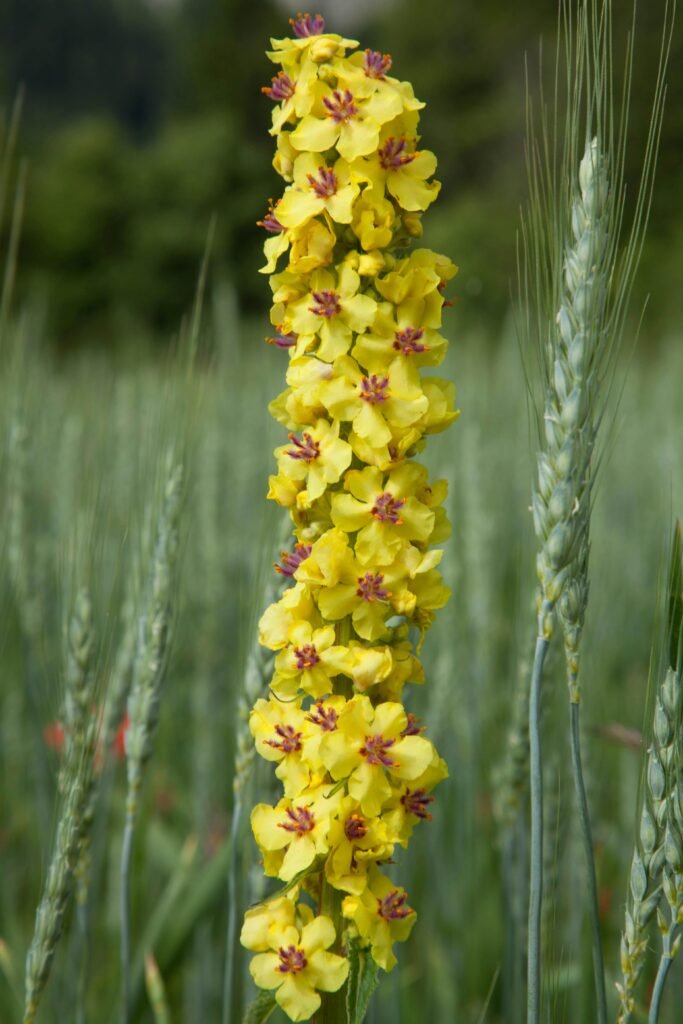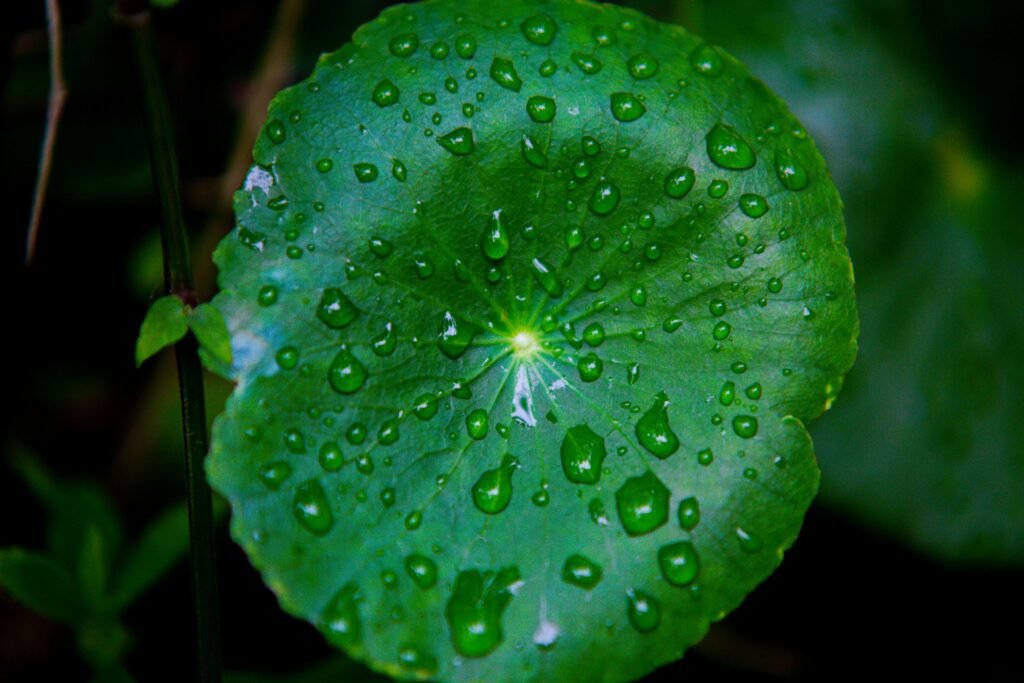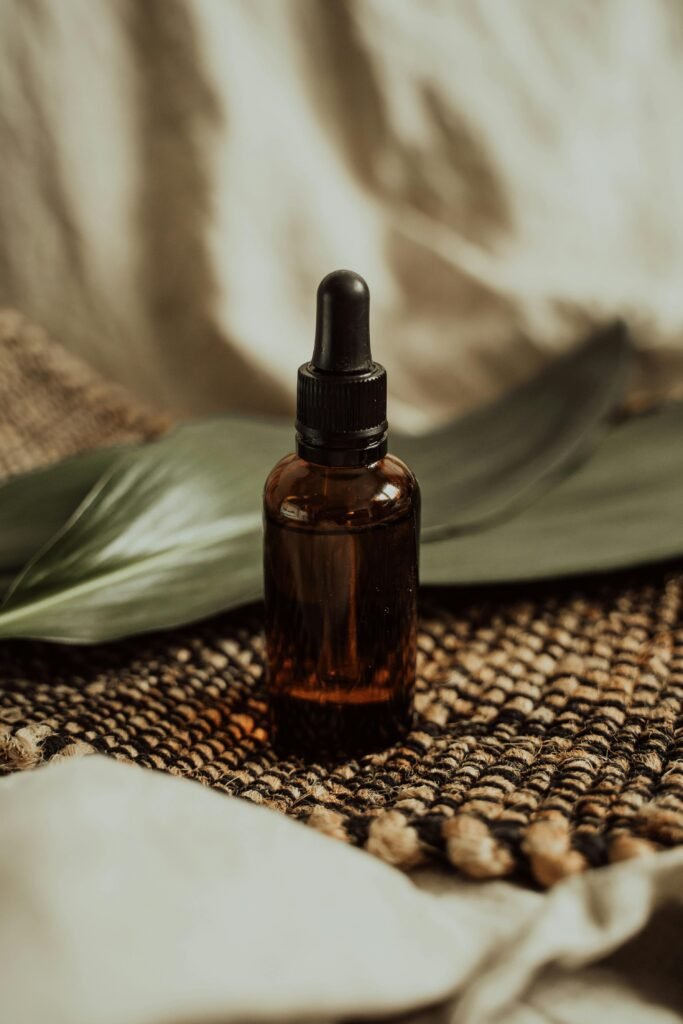Mullein (Verbascum thapsus) has a long history in traditional medicine, particularly for treating respiratory issues. Recent research validates Mullein’s health benefits, uses, and dosage, emphasizing its powerful antioxidant, anti-inflammatory, and antimicrobial effects, which contribute to its wide-ranging health benefits.
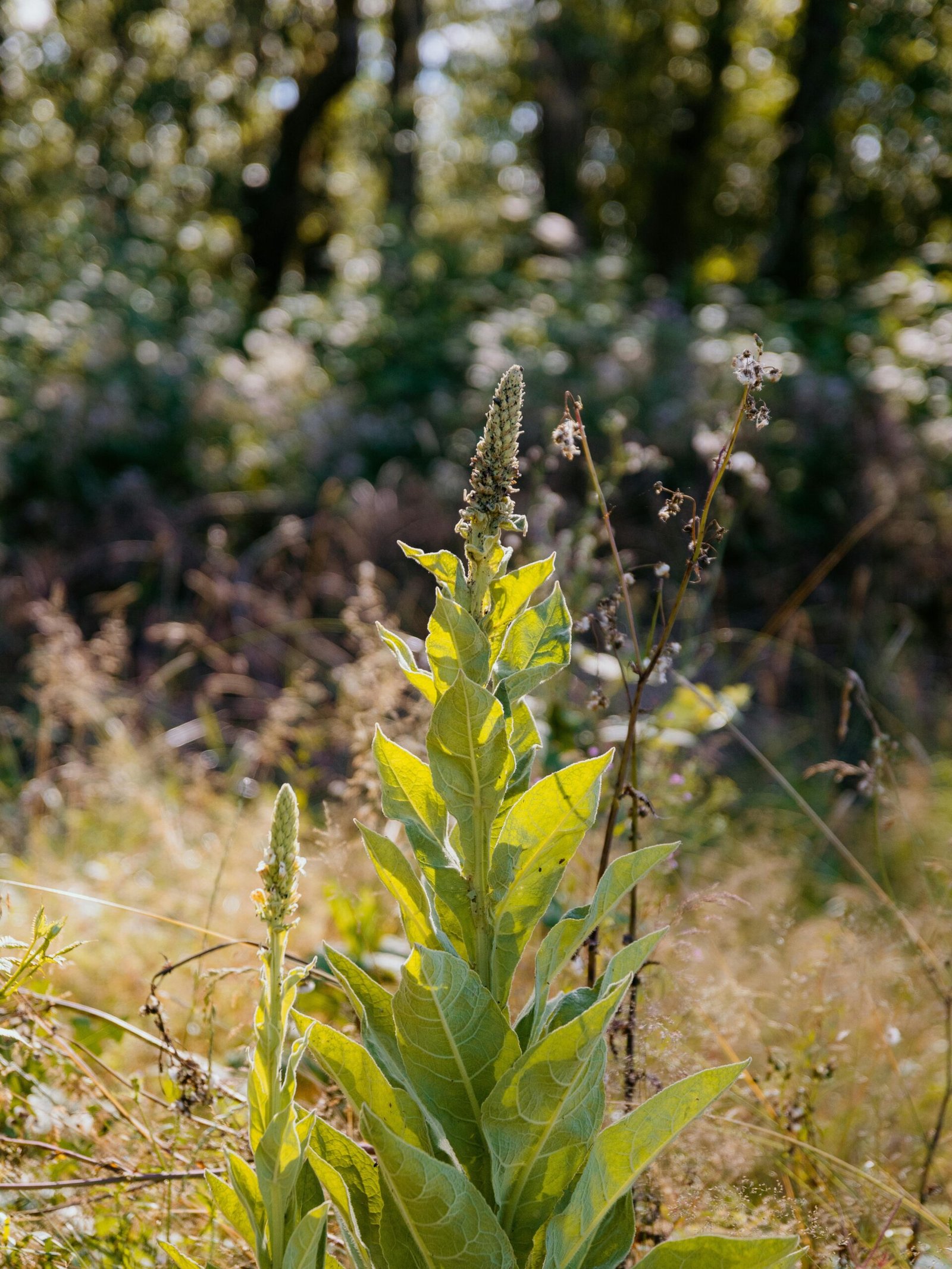
1. Respiratory Health Support
Mullein is perhaps best known for its ability to support lung health. Traditionally, it has been used to relieve symptoms of bronchitis, asthma, and other respiratory conditions. Studies show that mullein helps reduce inflammation in the airways, potentially making it an effective treatment for conditions like chronic obstructive pulmonary disease (COPD) and asthma. Its ability to soothe a sore throat and alleviate coughing has made it a go-to remedy for respiratory issues. (MDPI, Organic Facts)
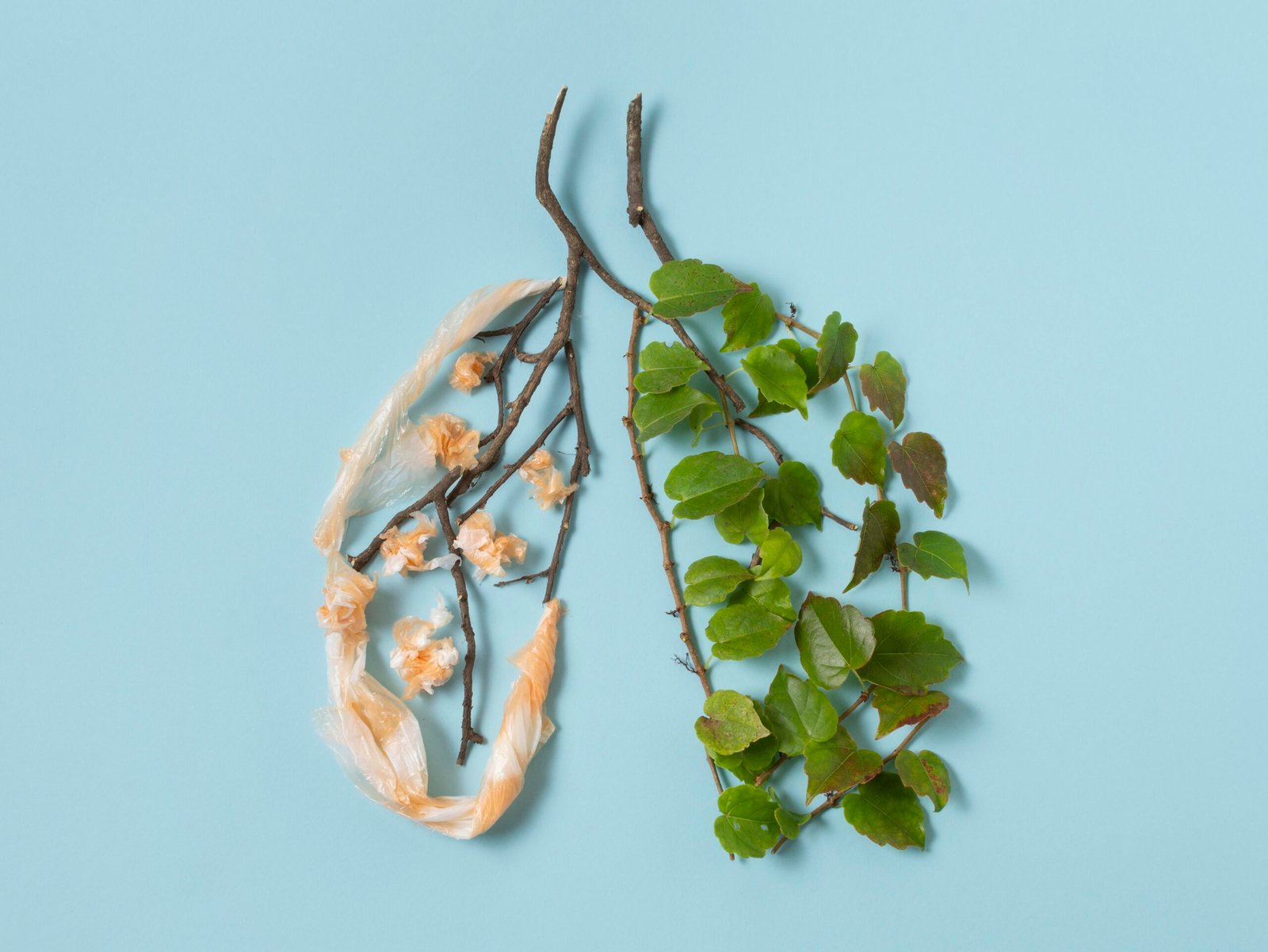
2. Antioxidant and Anti-Inflammatory Effects
Mullein contains potent antioxidants that help combat oxidative stress, which can lead to chronic diseases. Studies reveal that mullein flower extract increases the oxidative stability of oils, which suggests a similar protective effect when consumed. These antioxidants work by neutralizing free radicals, which are known to cause cellular damage and contribute to the aging process. (MDPI) Additionally, mullein’s anti-inflammatory effects have been demonstrated in lab studies, particularly due to a compound called verbascoside, which reduces inflammation in tissues. (Organic Facts The Botanical Institute)
3. Antimicrobial Properties
Mullein also exhibits strong antimicrobial properties. Research has shown that extracts from this plant are effective against bacteria and viruses, including strains commonly responsible for urinary tract infections (UTIs) and ear infections. In fact, mullein-infused ear drops have been found to alleviate earaches just as effectively as over-the-counter medications. (The Botanical Institute)
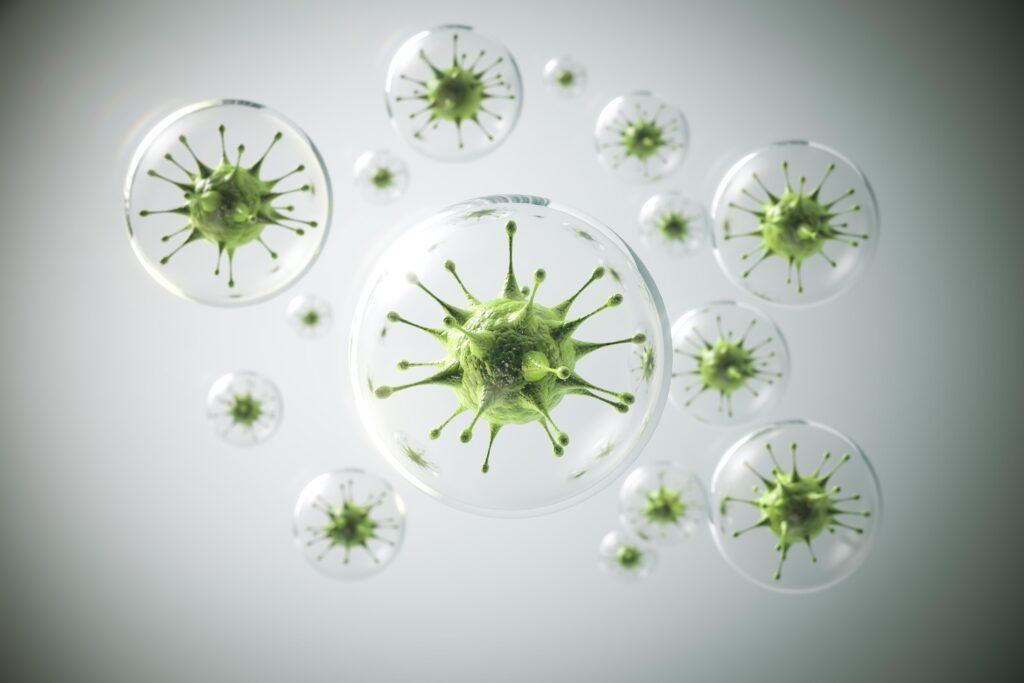
4. Wound Healing
Mullein has shown promise in wound healing. Its antimicrobial and anti-inflammatory properties make it an excellent topical treatment for minor cuts and wounds, helping to prevent infection and speed up recovery. (The Botanical Institute)
Recommended Dosage
The recommended dosage for mullein depends on the form in which it is consumed, and it varies slightly across studies and traditional use guidelines. Here are the common dosages for different forms:
1. Mullein Tea:
- Dosage: 1–2 teaspoons of dried mullein leaves or flowers, steeped in 1 cup of boiling water for 10–15 minutes, taken 2-3 times per day.
- Purpose: Traditionally used to alleviate respiratory issues such as coughs, asthma, and bronchitis.
(The Botanical Institute, Organic Facts)
2. Mullein Tincture:
- Dosage: 1–4 mL (20–80 drops), taken 1–3 times per day.
- Purpose: Commonly used for respiratory health or as a general anti-inflammatory and antioxidant support.
(The Botanical Institute, Organic Facts)
3. Mullein Capsules:
- Dosage: 500–1000 mg of dried mullein extract, taken 2-3 times daily.
- Purpose: Used for consistent respiratory and immune support, and often recommended for long-term use.
(The Botanical Institute, Organic Facts)
4. Mullein Oil (for Ear Infections):
- Dosage: A few drops of mullein oil in the affected ear, 2-3 times daily for 2-3 days.
- Purpose: Treating earaches and infections.
As always, it’s best to consult a healthcare provider before starting any herbal regimen, especially for specific conditions like respiratory issues or infections.
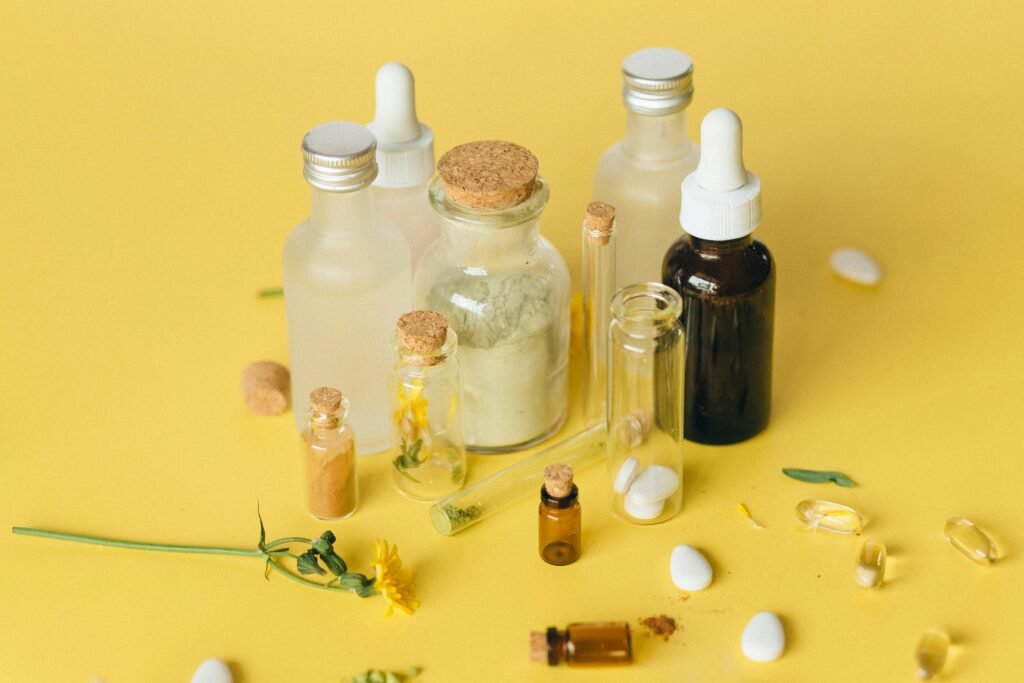
Final Thoughts
In conclusion, mullein is a versatile herb with scientifically backed benefits, especially for respiratory health, inflammation, and wound healing. Adding this powerful herb to your health regimen, either through supplements or teas, can be a natural way to support your body’s defenses.
For those looking to incorporate mullein into their daily routine, high-quality supplements can be found on Amazon. One well-reviewed option is WishGarden Herbs Respiratory Tonic, which features organic Mullein, wild-harvested ingredients and is known for supporting respiratory health. Another popular product is Nature’s Answer Mullein Leaf, which offers an alcohol-free extract of mullein leaves, ideal for people seeking a liquid supplement.
When selecting a supplement, look for organic or wildcrafted ingredients, third-party testing, and customer reviews to ensure you’re getting the best quality product.

